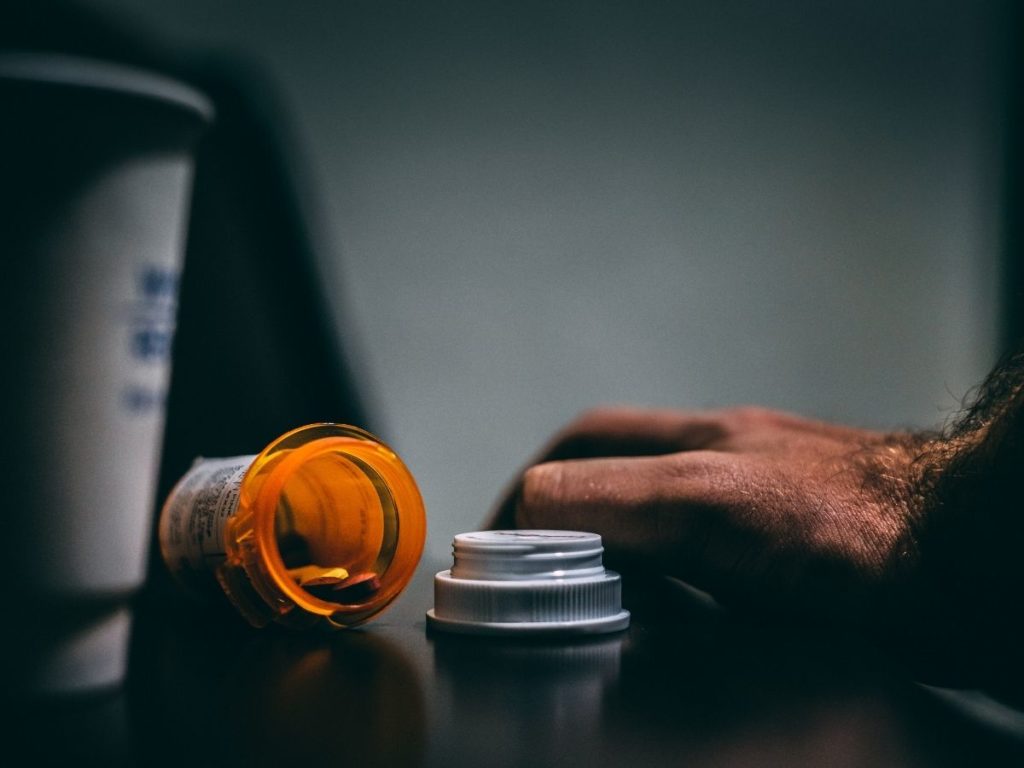What is Xanax Detox?
If you are heavily addicted, if you cannot control your drug use, or if you have tried tapering off and relapsed or increased your dose back up, inpatient detox may be right for you. Through this method, you will be removed from the dangers of monitoring your drug use on your own and you will have the benefit of around-the-clock care that ensures your abstinence and your overall safety and health. Xanax is a sedative medication that slows down thinking and other processes of the brain. In small doses, this effect is useful to manage disorders of thought like anxiety. People with anxiety have unusually high levels of worry and stress compared to others.
Xanax detox is a critical stage on the road to recovery, and those who have gone through it may view this process as a turning point in their lives. While withdrawal from alprazolam and other benzodiazepines can be a challenging experience, the benefits can be life-changing.

Xanax Addiction Symptoms
Tolerance to Xanax develops quickly, requiring the user to take more of the drug to achieve the desired effects. Someone with a Xanax addiction may take up to 20 or 30 pills per day. If the user decides to stop taking Xanax, they may experience withdrawal effects such as anxiety, restlessness, insomnia, and tremors. The onset of withdrawal symptoms is a sign that a physical dependence has developed. The development of tolerance and withdrawal are indications of addiction.
Knowing how to recognize Xanax Addiction’s signs and symptoms can help you know when to seek treatment for yourself or a loved one. Xanax addiction can be serious and affect a person’s mood, behavior, and physical characteristics.
- Agitation
- Anxiety
- Depression
- Diarrhea
- Dizziness
- Dry mouth
- Heart palpitations
- Hyperactivity
- Mania
- Seizures
- Slurred speech
- Tremors
While Xanax addiction cannot be completely cured — nor can any dependency on drugs or alcohol — treatment can help affected individuals address their behavior and return to a healthy lifestyle.
Signs of a Xanax Addiction
Regardless of the substance that has been used, there are some common warning signs of addiction you can consider at the moment of asking yourself if you may have an addiction or not. These are:
- There’s an urge or craving to use that’s so intense it’s difficult to focus on anything else.
- Needing to use more of the drug to achieve the same “high” (tolerance).
- Taking more and more of the drug or taking the drug for longer periods of time than intended.
- Spending a lot of time obtaining the drug, using it, and recovering from its effects.
- Continuing to use even though use affects your ability to fulfill duties at work, school, or home.
- Continuing to use despite it causing social or interpersonal problems.
- Giving up important activities or hobbies to use.
- Using recurrently in harm-promoting situations.
- Continuing to use despite it causing physical or psychological problems.
- Lacking the ability to stop using the drug without the assistance of professional intervention.
- Experiencing symptoms of withdrawal once you stop using the drug.

Xanax & Alprazolam are available in many formulations
- Immediate-release tablets.
- Extended-release tablets.
- Orally disintegrating tablets.
- Liquids to drink.
Xanax Detox Withdrawal Symptoms
You or your loved ones may try to detox from Xanax “cold turkey,” but this is not often safe. Safer options include at-home Xanax detox with the support of a physician or medical detox in a rehab facility. At-home detox may be more common for people taking Xanax with a prescription who need to stop taking it for one reason or another.
A person may be dependent on Xanax, but this does not mean they are addicted. They will benefit from a doctor slowly tapering their medication, but addiction treatment is not necessary. Medical detox in a rehab facility is the safest option for people with substance abuse disorder. Not only can medical detox provide support and make withdrawal as safe as possible, but the person then has the option to continue into Xanax addiction treatment.
The experience of Xanax detoxification and withdrawal can be unpleasant, but it is a necessary step that paves the way for long-term healing. According to the Substance Abuse & Mental Health Services Administration, patients who undergo Xanax detox may experience a wide range of withdrawal symptoms that can begin very quickly after the drug is eliminated from the user’s treatment regimen. To safely stop taking Xanax, you should always consult a medical professional. People with a legitimate prescription should speak with their prescriber. People taking it without a prescription should consider substance use disorder (SUD) treatment.
Physical Xanax Withdrawal Symptoms
- Insomnia
- Headaches
- Anxiety
- Paranoia
- Fear
- Chronic fatigue
- Lightheadedness
- Upset stomach
- Vomiting
- Nausea
Xanax physical side effects & psychological withdrawal symptoms
- Anxiety and panic
- Irritability
- Fear-potentiated reflex
- Confusion and depression
- Insomnia or restless sleep
- Nervousness or tension
- Withdrawing from family and friends
- Heightened senses (e.g., noises seem louder, lights seem brighter)
The collective symptoms of detoxification and withdrawal are referred to as benzodiazepine withdrawal syndrome. While withdrawal symptoms can occur for individuals who are taking Xanax exactly as their physician prescribed, it is much more common for people who abuse it.
How Long will Xanax Detox Take?
There is no specified period during which a user will be completely free from the symptoms of Xanax withdrawal. Various individual circumstances come into play when determining the length of time that a user will have to continue receiving Xanax detox treatment. You may experience withdrawal should consider Xanax detox. Detoxification is the process of removing unwanted substances from the body. The detox experience is often highly variable from person to person, which can pose challenges to reliably predicting the exact Xanax detox timeline.
One factor that influences Xanax detox is the drug’s duration of action. Xanax is a short-acting benzodiazepine, meaning that the withdrawal symptoms will start sooner than long-acting drugs. Xanax withdrawal symptoms may emerge within 6-8 hours, peak in intensity by the second day, and gradually subside by the fourth or fifth day. If you know someone is addicted to Xanax and looking for a reputable Xanax detox program, there are centers across the United States that can help.
Xanax Detox
Xanax detox and withdrawal are critical steps on the road to recovery. The process itself can be dangerous without proper guidance, so having medical supervision is crucial to your safety during this time.
If you decide to undergo at-home Xanax detox, they should inform their loved ones and seek help from a medical professional, such as a doctor or a nurse, to keep an eye on the process. Friends, family, and medical professionals can provide critical support to ensure medical Xanax detox continues as planned. While at-home detox is an option, people living with a severe addiction should seek professional treatment.
Detox will usually be extended for those using a taper plan. Xanax Detox may take as long as several months because the process is based on whether the drug is still in the body. You may be able to taper faster while in a medical detox facility.
The process typically involves medical support while the body clears the drug. The half-life of Xanax is about 11 hours, so it takes the body 50 hours to completely clear it.

Benefits of Xanax Detox
There are many benefits of attending a professional drug detox center, such as:
- Drug abuse treatment planning.
- Peer support
- Medical care and monitoring
- Safe, drug-free environment
- Medications to mitigate withdrawal symptoms and reduce cravings
- Mental health care
- Lower risk of relapse
Professional detox treatment can limit the distress of detox while ensuring your safety. Detoxification facilitates the removal of unwanted substances from the body and is an invaluable intervention to initiate recovery. As a person seeking drug detox, you can expect several primary types of treatment
- Outpatient: If you have many supports, a less serious Xanax dependence, and have a low risk of complicated withdrawal, outpatient treatment may be a good fit. Outpatient detox allows you to maintain much of your normal life and attend treatment at locations like:
- A substance abuse treatment facility.
- A community health center.
- A physician’s office.
- Inpatient: If you have few supports, a severe addiction, and are at risk for dangerous withdrawal symptoms, inpatient treatment is the appropriate detox option for you. Inpatient treatment offers 24-hour care as you will live in the detox center during treatment to maintain a safe, consistent environment with available medical intervention.
Detox can begin the road to recovery, but it is only one aspect of the continuum of care. For the best results, you should eventually transition into a Xanax addiction treatment program to learn relapse prevention skills and promote long-term sobriety. These can range from small, local clinics to full-service rehab centers. We Level Up offers a full continuum of care programs, including medical detox, in their nationwide network of facilities. If you are looking for options, searching through websites can be misleading.
We Level Up Washington center, provide proper care with our round-the-clock physicians available to help you cope and be successful with your recovery. Reclaim your life, call to speak with one of the treatment specialists. The counselors know what you are going through and will answer any of your questions.
Reclaim Your Life With We Level Up Washington
Xanax addiction is a condition that can cause major health, social, and economic problems that should not be taken lightly. We Level Up Treatment Center can provide you, or someone you love, the tools to recover from this with primary mental health treatment. Feel free to call us to speak with one of our counselors. We can inform you about this condition by giving you relevant information. Our specialists know what you are going through. Please know that each call is private and confidential.
We Level Up Washington Mental Health Center: Primary Mental Health Treatment with Secondary Co-Occurring Treatments
The We Level Up Washington primary mental health center stands ready to help. Offering secondary treatment programs for underlying conditions like Xanax addiction that frequently fuels harmful behaviors. Taking that first step to get the professional support you need can be life-transforming.
We know how mental health disorders and secondary co-occurring substance abuse diagnoses directly affect one another. The We Level Up Washington treatment center provides recovery programs through science-based mental health treatments that can help you feel better. Call us now for a free mental health evaluation!
Inpatient medical detox and residential primary addiction treatment may be available at affiliated facilities at other We Level Up Treatment Centers locations beyond the Washington treatment facility.